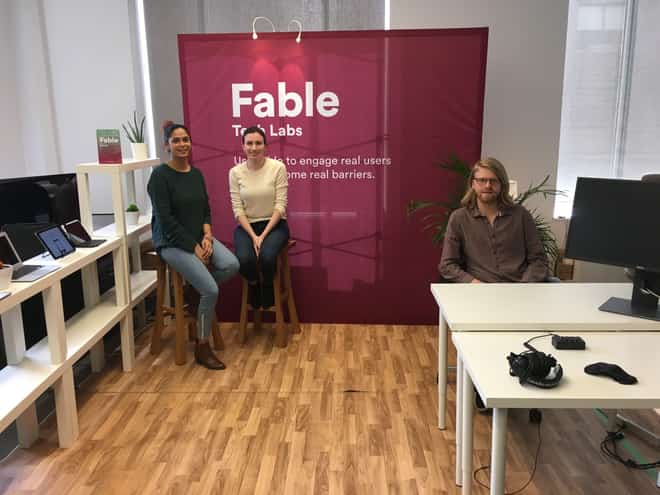
Accessible
Interaction Design
Interaction Design
Compliance Testing
Image: Person sitting in front of a computer screen with code.
Overview
Designing and building web pages can be a complex process with many components. Regular testing for accessibility is important in ensuring a smooth workflow and that your final production meets the legal requirements for accessibility but also that your digital products have a high degree of usability. It’s important to remember that not everyone accesses information in the same way. In this section we will look at different ways that you can assess your web products and explore tools to help you access the information in diverse ways.
Developing an Understanding
Before delving into the various ways you can test your web projects for accessibility, it’s important to first understand that human diversity is infinite and that creating a website that is 100% accessible should not be the goal. The Mozilla Developer forum states: "100% accessibility" is an unobtainable ideal — you will always come across some kind of edge case that results in a certain user finding certain content difficult to use — but you should do as much as you can.”(Mozilla, 2021).
Other common misconceptions about web accessibility include:
- Expensive – If access is considered from the beginning of a project, many barriers can be avoided in the design phase.
- Time Consuming – If you consider access throughout the process, remediation will be at a minimum. Access is built into your development.
- Ugly – It doesn't have to be – most of the access features happen in the back end and remember that the content should be the star – the purpose of the website is to communicate.
When testing your web products, consider moving beyond the minimum compliance and strive to create more usable web content that ultimately will benefit everyone.

Spotlight: Fable
Fable Tech Labs is a Toronto based company that provides digital accessibility testing services by people from the disability community. Launched in 2018, they offer services worldwide and employs people with motor and visual disabilities to offer digital accessibility testing, research, and quality assurance services to companies designing and developing digital products. The online platform for making and reviewing requests for support is fully accessible, allowing people to work flexibly and remotely. In 2020, Fable had 100 people with disabilities working as accessibility testers. (Zero Project, 2021)
The values that Fable live and work by:
To lead, listen first
Amplify voices that are less often heard and create space for those voices to grow. The quality of an idea doesn’t correlate with the loudness of someone’s voice.
The brain is a muscle
If you are going to do something, do it well. Practice often and rest when needed. Give your mind what it needs to thrive.
Unlearn to learn
What did we learn growing up, and what do we need to unlearn? It’s essential to understanding our personal bias and position so that we can grow.
(Fable opens in new window, 2021)
In this video, Fable Tech Lab founders Abid Virani and Alwar Pillai, explain how people with disabilities have a unique skill set that can be used to build better companies.




